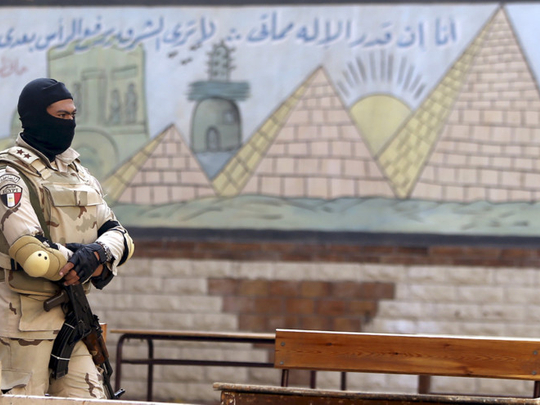
Cairo: Egyptians in nearly half the country, including the capital Cairo, were voting on Sunday in the second stage of parliamentary elections that will produce the country’s first legislature since a chamber dominated by Islamists was dissolved by a court ruling in 2012.
Tens of thousands of troops and policemen were deployed to safeguard the two-day vote, reflecting growing security concerns less than a month after a Russian airliner crashed in Egypt’s Sinai Peninsula, killing all 224 people on board. Russia has said the crash was caused by an onboard bomb, and a local Daesh affiliate has claimed the Oct. 31 attack.
The new, 596-seat legislature is due to hold its inaugural session next month after a runoff is held in early December. Egyptians voted last month in 14 provinces, the vote’s first phase.
President Abdul Fattah Al Sissi, a career army officer, led the military’s ouster of Egypt’s first freely elected leader, the Islamist Mohammad Morsi, in 2013, amid a wave of mass demonstrations against his rule. Al Sissi was elected last year.
Since Mursi’s ouster, authorities have launched an all-out crackdown against the Muslim Brotherhood, his now-banned Islamist group, jailing thousands.
The young liberal and pro-democracy activists who spearheaded the 2011 uprising have also been swept up in the crackdown, with authorities detaining dozens of them, mostly for breaching a law adopted in November 2013 that effectively bans street demonstrations.
Most of the candidates for parliament are either members of alliances supportive of Al Sissi or political independents -- mainly businessmen and local power brokers, many of whom served as legislators during the Mubarak era. There are no candidates from opposition parties.
The next legislature is expected to be compliant, or at least dominated by lawmakers who support Al Sissi. Since taking office 17 months ago, the retired general has run the country with few checks or balances, issuing about 300 laws, including key legislation on the exercise of political rights and a terror law that has placed restrictions on the media.
“We’re with the president. We have hope because he’s ... working, and we trust him,” Hala Sharif, a 50-year-old engineer and mother of three, said after she cast her vote in an upscale Cairo neighborhood.












